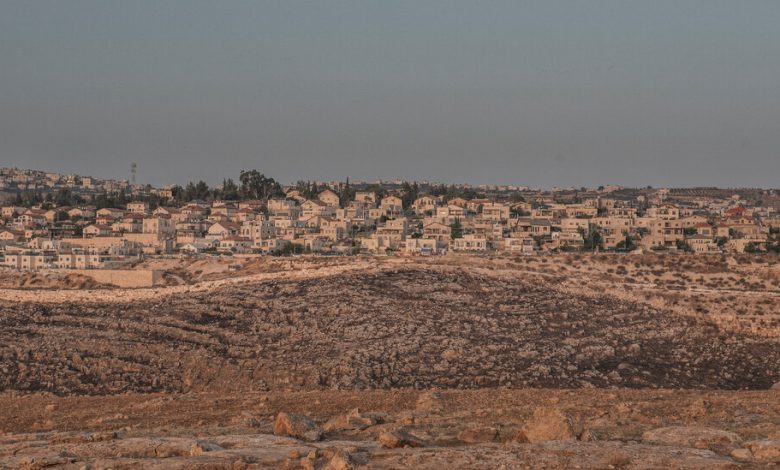Israel Eases West Bank Settlement Rules, Clearing Way for New Homes

The Israeli government on Sunday decided to ease and expedite the process for approving new Jewish settlement construction in the occupied West Bank amid plans to advance thousands of new housing units there.
The policy change also transfers the main responsibility for housing approval from the defense minister, currently Yoav Gallant, to the finance minister, Bezalel Smotrich, a far-right former settlement activist who is also serving as a secondary defense minister and who advocates Israeli annexation of the West Bank.
The decision came as a senior American official, Barbara Leaf, the assistant secretary of state for Near Eastern affairs, was to arrive in the region. Her trip is aimed at, among other things, trying to expand Israel’s relations with Arab states — a mission that would appear to be complicated by the prospect of more settlement activity in the West Bank.
Most countries consider Jewish settlements in the occupied territories that Israel captured from Jordan in the Arab-Israeli War of 1967 to be in violation of international law. The Biden administration, like most previous American administrations, has repeatedly condemnedconstruction in settlements, considering it a source of increased tensions with Palestinians and a hindrance to the prospects of any permanent peace based on the two-state solution because they undermine the future establishment of an independent Palestinian state in those territories.
The change agreed to on Sunday is an amendment to planning procedures that have been in place since 1996. The amendment removes the need for high-level political approval at various interim stages of the planning process, making it harder for the prime minister and defense minister to slow or pause new settlement construction for diplomatic or security reasons and generally allowing for accelerated expansion.
Government officials said that the change would cut unnecessary red tape in the approval process and that new construction would still be subject to final authorization by the prime minister.
The altered rules specify that the responsibility for approvals will be transferred to Mr. Smotrich for the duration of the current government and will apply to any government that appoints an additional minister to serve in the Defense Ministry.
The Trump administration reversed decades of American policy in 2019 by declaring that the United States did not consider West Bank settlements to be in violation of international law. But the Biden administration has called on Israel to rein in construction in the occupied territories, and Palestinians have demanded the land for a future state, a goal that has long been backed by the United Nations, European governments and American allies across the Middle East.
The planning change illustrates a balance that the Israeli prime minister, Benjamin Netanyahu, is trying to strike between the demands of his ultranationalist coalition partners and his stated goal of normalizing relations with Saudi Arabia. Though Saudi Arabia is no longer demanding the establishment of a Palestinian state as a condition for establishing open diplomatic ties with Israel, vast settlement expansion is unlikely to help.
Mr. Smotrich commented on the changes to the planning process in a post on Twitter. “The construction boom in Judea and Samaria and all over our country continues,” he wrote, referring to the West Bank by biblical names.
“With God’s help, we will continue to expand settlement and strengthen Israel’s hold on the territory,” he added.
Peace Now, an Israeli advocacy group that opposes settlements and tracks their progress, said in a statement that the Netanyahu government was empowering “a dangerous minority driven by messianic ideals” by handing the approval power to Mr. Smotrich, leader of the hard-right Religious Zionism party.
“This decision will inevitably lead to further harmful construction in the settlements, in clear violation of international law,” Peace Now added, saying that the government was on a “path toward de facto annexation.”
In response to the Israeli move, a top Palestinian official, Hussein al-Sheikh, said that the Palestinian leadership had decided to boycott a Monday meeting of the Joint Economic Committee, which regulates economic relations between the two sides. He said that the Palestinian leadership would “examine a number of other measures” to further protest the planning amendment.
The Ministry of Foreign Affairs in Jordan also condemned the Israeli government’s decision. Israel and Jordan signed a peace treaty in 1994 and maintain a strategic relationship.
An Israeli planning committee is scheduled to meet on June 26 to discuss projects involving more than 4,000 new settlement homes at various stages of the approval process. The proposed units are the second tranche of approximately 10,000 new settlement homes that were promised by the government after it came to power.
Myra Noveck contributed reporting from Jerusalem, and Gabby Sobelman from Rehovot, Israel.



